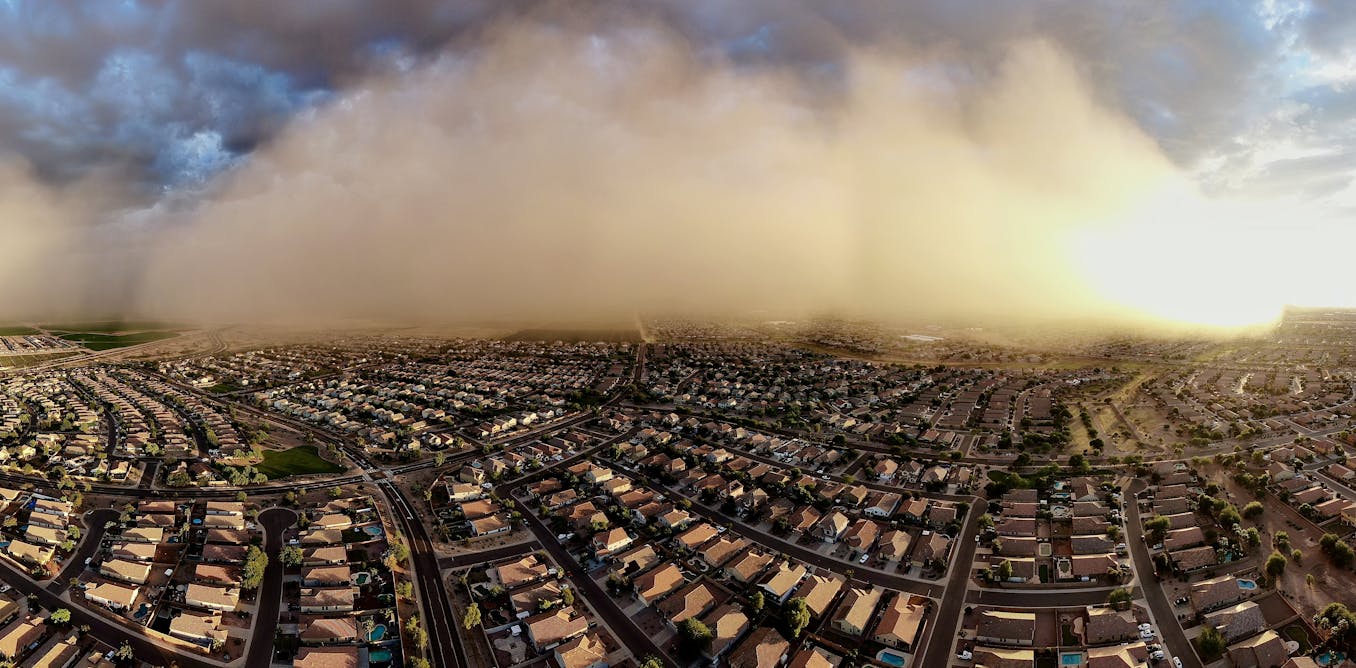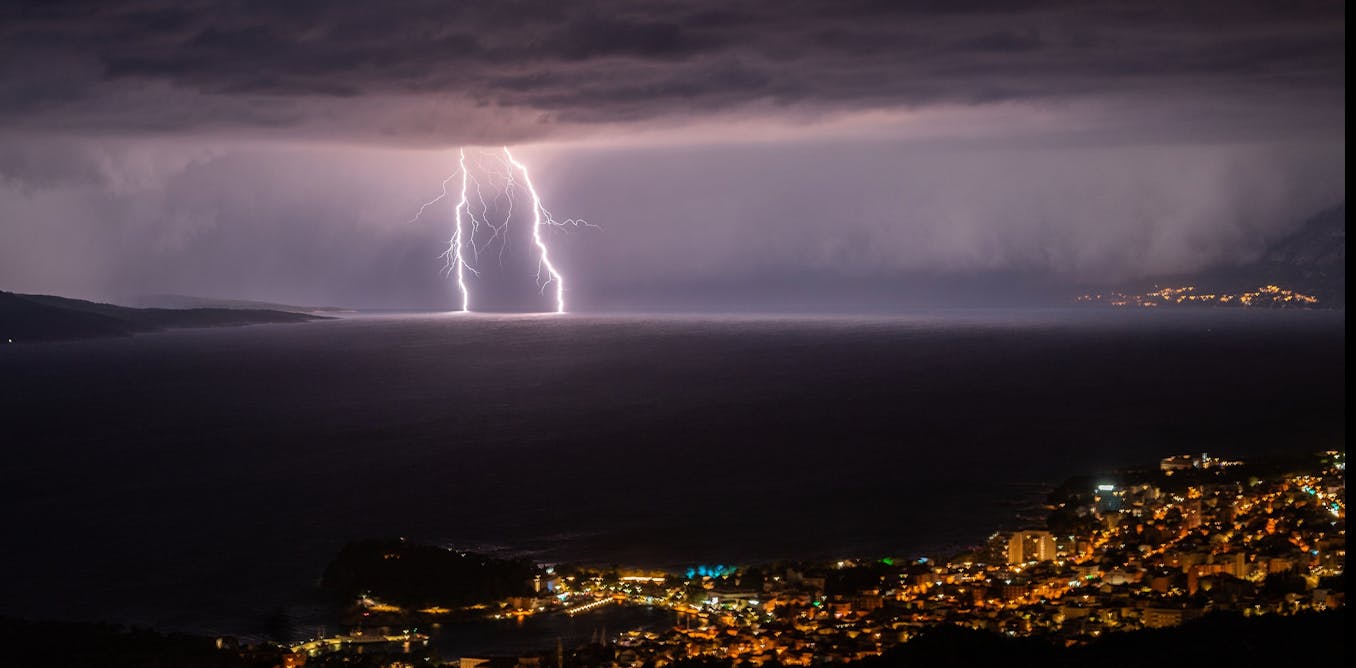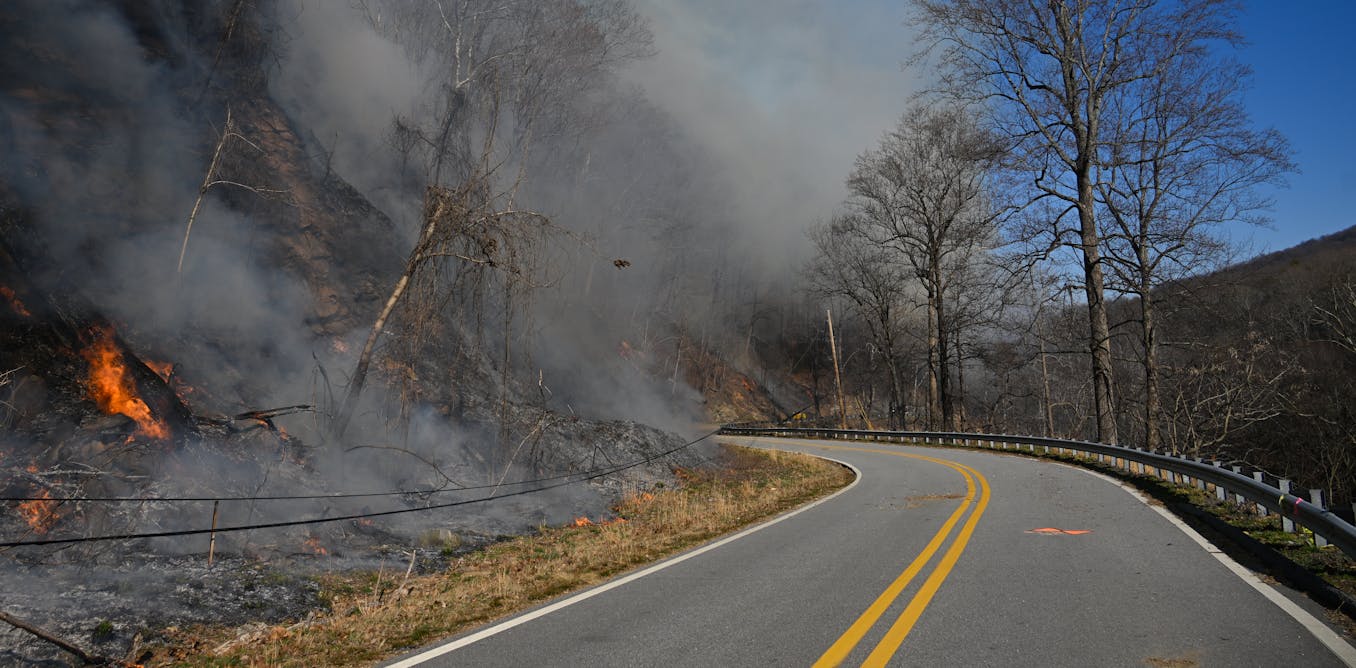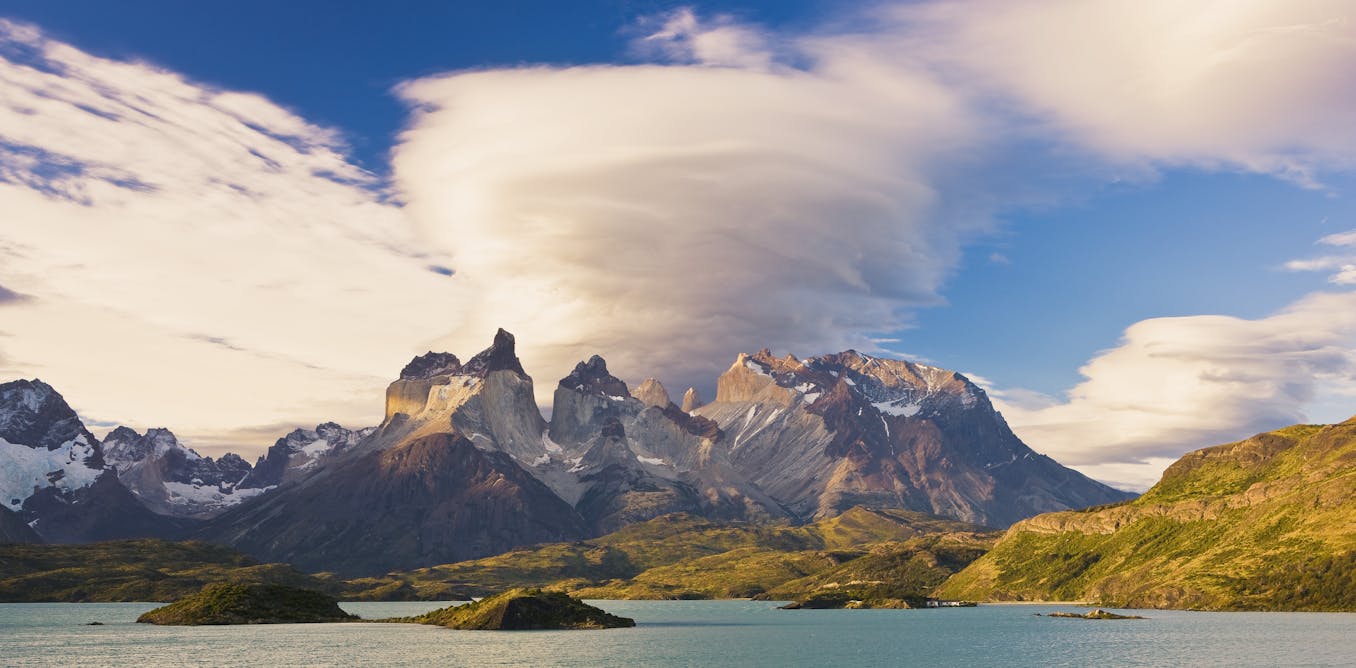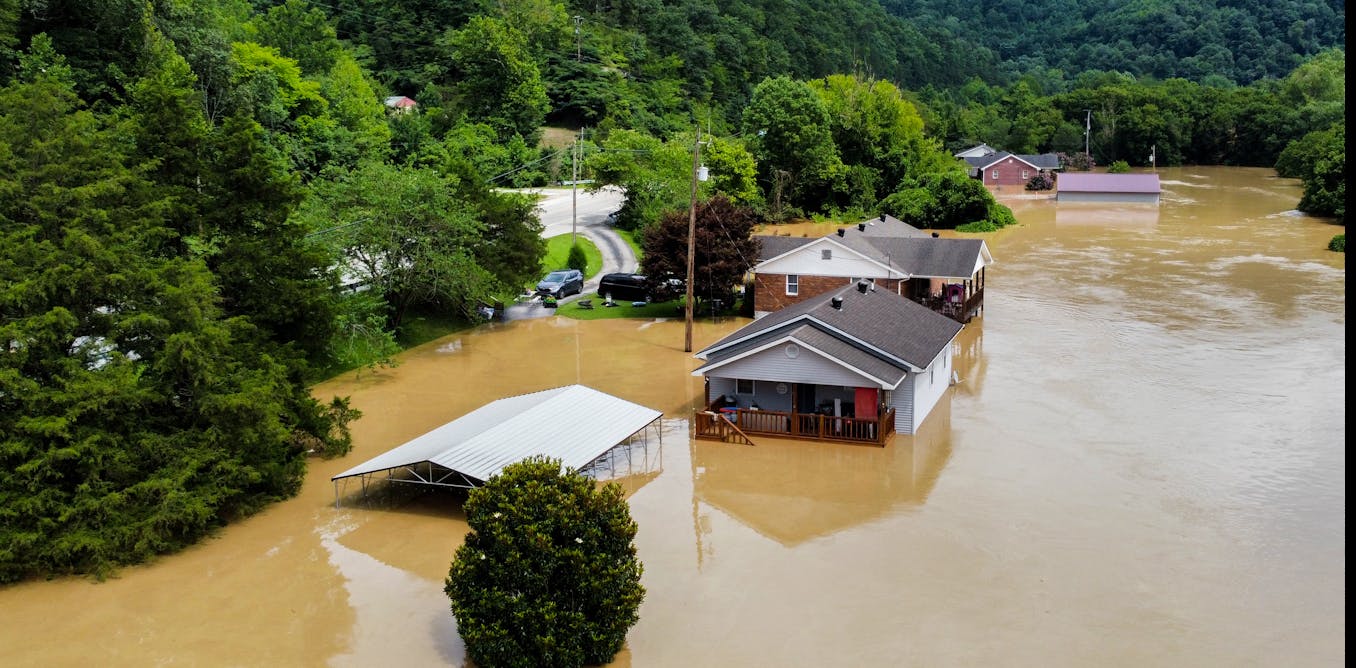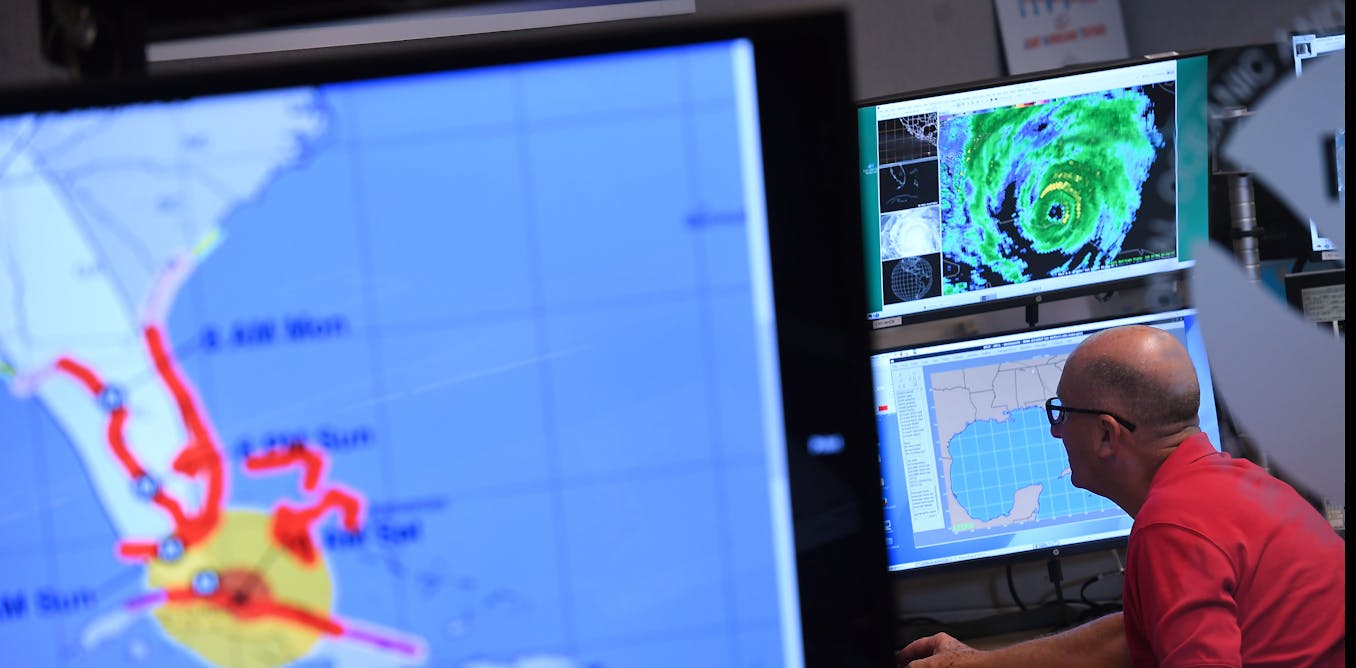What causes the powerful winds that fuel dust storms, wildfires and blizzards? A weather scientist explains
One long line of powerful winds can whip up dust storms, spread wildfires, spin up tornadoes and fuel blizzards – all at the same time across different states.
March 20, 2025 • ~8 min
The world regulated sulfur in ship fuels − and the lightning stopped
An unplanned experiment takes scientists closer to solving a long-standing mystery: To what extent, if any, have human-created emissions influenced thunderstorms?
March 11, 2025 • ~8 min
Carolina wildfires followed months of weather whiplash, from drought to hurricane-fueled floods and back to drought
Fires are a natural part of the landscape and essential for many species. But scores of fires at once were more than anyone bargained for.
March 5, 2025 • ~6 min
How are clouds’ shapes made? A scientist explains the different cloud types and how they help forecast weather
Puffy to wispy, barely there or dark and menacing, clouds come in many shapes and sizes. Each tells a story about what’s going on in the atmosphere.
March 3, 2025 • ~5 min
Coastal economies rely on NOAA, from Maine to Florida, Texas and Alaska – even if they don’t realize it
NOAA’s work has kept fisheries from collapsing, helped coastal ecosystems survive extreme heat and battled invasive species, among many other tasks essential to coastal economies.
Feb. 28, 2025 • ~10 min
In many of Appalachia’s flood-ravaged areas, residents have little choice but rebuild in risky locations
The latest floods exposed the deep vulnerability of many mountain communities in eastern Kentucky, where land ownership patterns and other barriers to recovery can leave residents with few options.
Feb. 26, 2025 • ~13 min
Why people rebuild in Appalachia’s flood-ravaged areas despite the risks
The latest floods exposed the deep vulnerability of many mountain communities in eastern Kentucky, where land ownership patterns and other barriers to recovery can leave residents with few options.
Feb. 26, 2025 • ~13 min
NOAA’s vast public weather data powers the local forecasts on your phone and TV – a private company alone couldn’t match it
NOAA operates fleets of satellites, sensors on airplanes and ocean-going buoys, as well as radar, providing the data used by weather forecasters nationwide – and freely available to anyone.
Feb. 11, 2025 • ~10 min
/
59



